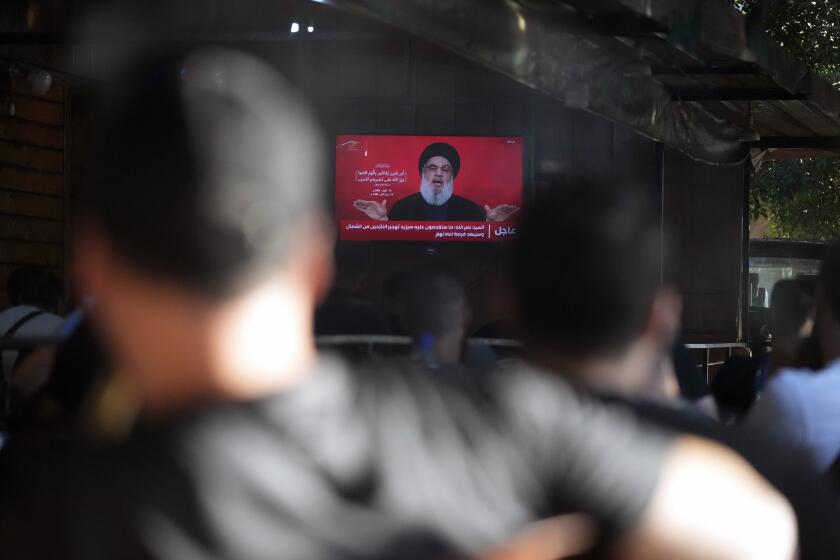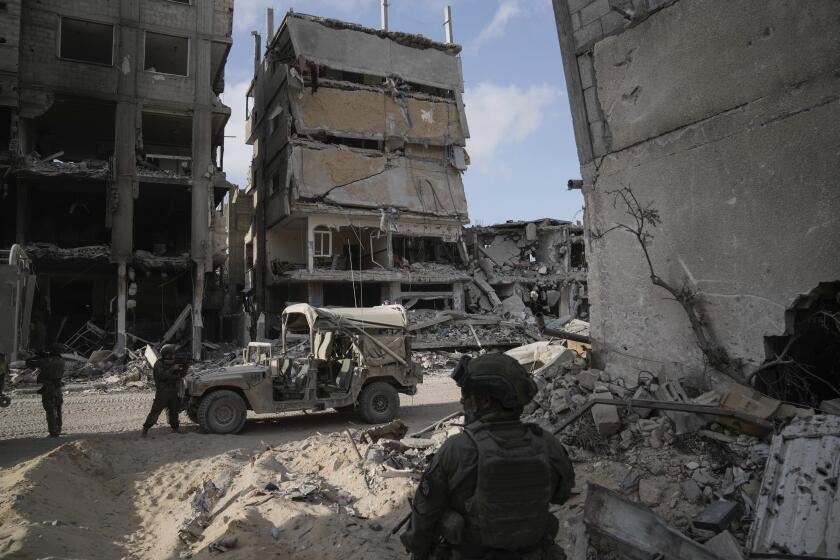Afghanistan Swears In Its First Elected Parliament in 3 Decades
An elected Afghan parliament was sworn in for the first time in more than 30 years Monday, facing rampant corruption, threats from drug lords and a surge in suicide bombings.
President Hamid Karzai, his voice breaking with emotion, said Afghans had won the world’s respect with their difficult struggle to build a democracy. But he cautioned that a lot of hard work still lay ahead.
“We Afghans have the right to stand with honor and dignity with the international community,” Karzai told the assembly.
“We shall say that this undying bird rose up again, from the ashes of invasion and shame, and is flying again,” he added. “And we declare that this destroyed country and tired nation will exist for ever and ever.”
Vice President Dick Cheney and his wife, Lynne, had front-row seats for the opening of parliament, along with U.S. Ambassador Ronald E. Neumann and U.S. Army Lt. Gen. Karl Eikenberry, who commands about 20,000 American troops here. Many of those soldiers are still battling Taliban and other insurgents four years after U.S.-led forces toppled the Islamic extremists’ regime.
Afghans elected 249 members to parliament’s lower house Sept. 18 under a voting system designed to prevent parties or blocs from dominating the assembly. Instead, it represents a broad spectrum of political and religious views that many Afghans fear may paralyze their government.
Communists sit beside bitter enemies such as former guerrillas who drove out Soviet forces in 1989. Women, who hold more than a quarter of the seats, may freely debate a few former members of the Taliban regime, which forced women to veil themselves from head to toe and denied girls an education.
The new parliament will be able to pass laws and veto members of Karzai’s Cabinet, but most power remains in the president’s hands. Karzai has said he welcomes opposition from the assembly, but many analysts expect its members to spend more time bickering among themselves.
After decades of war, Afghans long for a stable government that can solve numerous problems, including corruption, mismanagement of foreign aid and continuing insecurity in large parts of the country.
Karzai is struggling to stop a multibillion-dollar heroin and opium trade that is considered by many to be a bigger threat to Afghanistan’s emerging democracy than terrorism. His government’s counter-narcotics effort is plagued by corruption, and has shown mixed results so far.
The amount of farmland used to grow opium, the key ingredient in heroin, dropped 21% this year, according to a United Nations and Afghan government survey released last week. But the opium harvest is expected to decline only slightly, mostly because of good weather that produced a bumper opium crop on the remaining farmland, the survey found. Afghan farmers are expected to harvest more than 4,500 tons of opium, just a 2.4% drop from last year.
Afghanistan is expected to earn $2.7 billion from illegal drug exports this year, almost as much as it did in 2004, the study said.
Most of the profit goes to drug lords, some of whom have allies in the national counter-narcotics force, the ranks of Karzai’s government and in the halls of the new parliament.
“Our farmers receive very little benefit from the cultivation of opium while most of the money goes to foreign countries’ banks and international terrorists,” Karzai told the assembly. “The only thing that we receive from the drugs is a bad name.”
Despite Karzai’s promises to end the drug trade, critics of his administration say he has appointed governors, police commanders and other officials who either traffic in opium and heroin or profit from the illicit trade.
In addition to the presence of suspected traffickers in the new parliament, up to 60% of the lower house’s members are linked to past or current human rights abuses, New York-based Human Rights Watch says.
In recent weeks, insurgents have stepped up suicide bombings, which used to be rare here. On Friday, a car bomb exploded next to two Norwegian peacekeepers’ vehicles, near the new parliament building. The suicide attack killed a civilian.
Three U.S. service members were wounded Sunday by a roadside bomb near the southern village of Dai Chopan, where forces have fought repeated battles with Taliban militants. At least 66 U.S. troops have died from hostile fire this year.
Monday’s opening of parliament was the first here since 1969, when Afghans elected a national assembly for only the second time in their history.
More to Read
Sign up for Essential California
The most important California stories and recommendations in your inbox every morning.
You may occasionally receive promotional content from the Los Angeles Times.










